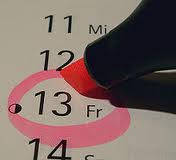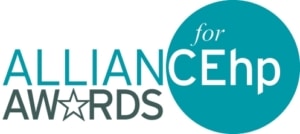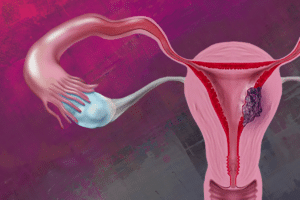 Some people take fear of Friday the 13th or paraskevidekatriaphobia very seriously. The year 2012 is an especially bad year for those who fear this day. Most years have one or two Friday the 13ths, but this year, there are three. And, they are 13 weeks apart. (January 13th, April 13th, July 13th).
Some people take fear of Friday the 13th or paraskevidekatriaphobia very seriously. The year 2012 is an especially bad year for those who fear this day. Most years have one or two Friday the 13ths, but this year, there are three. And, they are 13 weeks apart. (January 13th, April 13th, July 13th).
It is estimated that many millions of dollars are lost in business on this day. Symptoms range from mild anxiety to full-blown panic attacks. The latter may cause people to reshuffle schedules or miss an entire day’s work. Some refuse to fly, or conduct business as usual.
A study published in the British Medical Journal examined the relation between health, behavior, and superstition surrounding Friday 13th in the United Kingdom by comparing Friday the 13th with another Friday in these 3 areas. Results demonstrated that there were consistently and significantly fewer vehicles on the road on Friday the 13th compared with Friday the 6th. The numbers of shoppers were not significantly different on the two days. However, hospital admissions due to transport accidents were significantly increased on Friday 13th (total 65 v 45; p < 0.05), an increase of 52%.(1)
Separate from the day of the week, the number 13 has a reputation all its own. Fear of the number 13 is a condition called triskaidekaphobia. Many notable figures throughout history have had issues with the number 13 including President Franklin D. Roosevelt, who would not travel on the 13th day of any month and would never host 13 guests at a meal. According to Thomas Fernsler, an associate policy scientist in the Mathematics and Science Education Resource Center at the University of Delaware in Newark, the number 13 suffers because of its position after 12. Numerologists consider 12 a “complete” number. There are 12 months in a year, 12 signs of the zodiac, 12 gods of Olympus, 12 labors of Hercules, 12 tribes of Israel, and 12 apostles of Jesus.(2)
More than 80 percent of high-rise buildings lack a 13th floor. Many airports skip the 13th gate. Hospitals and hotels regularly have no room number 13. On streets in Florence, Italy, the house between number 12 and 14 is addressed as 12 and a half. (3)
According to DSM-IV. a phobia is a marked and persistent fear that is excessive or unreasonable, cued by the presence or anticipation of a specific object or situation (e.g., flying, heights, animals, seeing blood).Exposure to the phobic stimulus almost invariably provokes an immediate anxiety response, which may take the form of a situationally bound or situationally predisposed panic attack. The phobic situation is avoided or else is endured with intense anxiety or distress.The avoidance, anxious anticipation, or distress in the feared situation(s) interferes significantly with the person’s normal routine, occupational (or academic) functioning, or social activities or relationships, or there is marked distress about having the phobia.(4)
Take a Poll
[polldaddy poll=6134516]
Sources:
(1) Scanlon TJ. BMJ
(2) Fernsler T. Univ Delaware
(3) Dossey DE. Holiday Folklore, Phobias and Fun: Mythical Origins, Scientific Treatments and Superstitious “Cures”
(4) DSM-IV-TR







